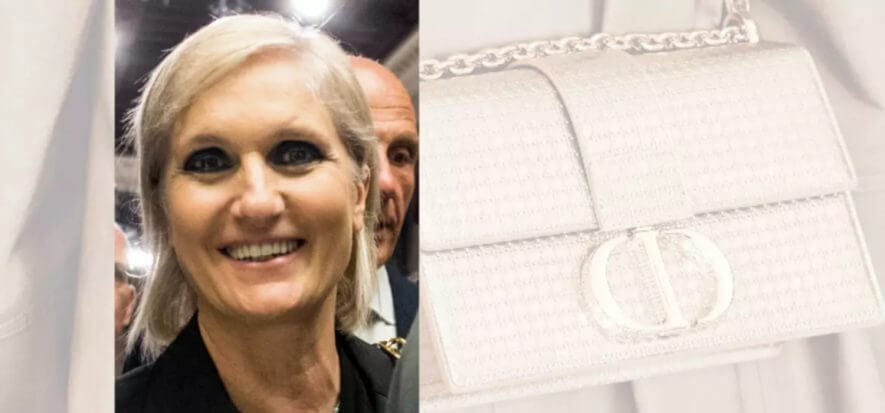Maria Grazia Chiuri feels compelled to make things clear. Investments in sustainability are necessary, but the green revolution in fashion is complicated, and there are no easy solutions as many would like. This is precisely why the market is becoming polarised: because only the big players have the resources to invest in a green direction. And, even more, this is why the idea of a democratic luxury is a fool’s errand: you have to pay for quality.
The ecological transition
Creative director of Dior (in the photo, archive) spoke in Florence during a preview of Confindustria’s Future for Fashion next March. “This ecological transition requires a cultural change and investments that only large companies can afford,” she told Il Sole 24 Ore. “One risk is that, in this new scenario, artisans who do not have the resources to invest will be cut off from the market in seconds, as will young designers who want to launch a brand. The gap between big and small risks is widening”.
Chiuri leads a brand that can rightly be counted among the big names. “We are enlarging our Scandicci factory,” she told La Repubblica, “a magical, unrepeatable place. You only need to come for one day and you can do everything, because the metal and leather workers are just a stone’s throw away, and they will bring you the model for your project in just a few minutes”.
But you pay for quality
You can’t think that the result of these investments will reach the public with cheap prices. “In Italy, we have to get the idea of democratic fashion out of our heads. If a garment is well made, why does it have to be democratic? Quality at a low price does not exist, if the price is low it is because behind it there is someone who has not been paid well”.
Awareness
“Today, we talk about ecological transition, but everything has to do with it. In our sector, the complexity behind this system is often not explained, and how difficult it is to make choices that do not have an even worse impact”. Chiuri, in the columns of MFF, makes an appeal to the quality of the debate concerning the media ecosystem: “The new media do not allow or stimulate reflection or dialogue”. As for human capital: “Young people are sensitive to the subject but feasible solutions must be found. They often think that the ecological transition can be done quickly,” she concludes. “I have an extremely young office, with young people who come from excellent schools, but sometimes they say naive things, they don’t realise the complexity of it”.
Read also:











